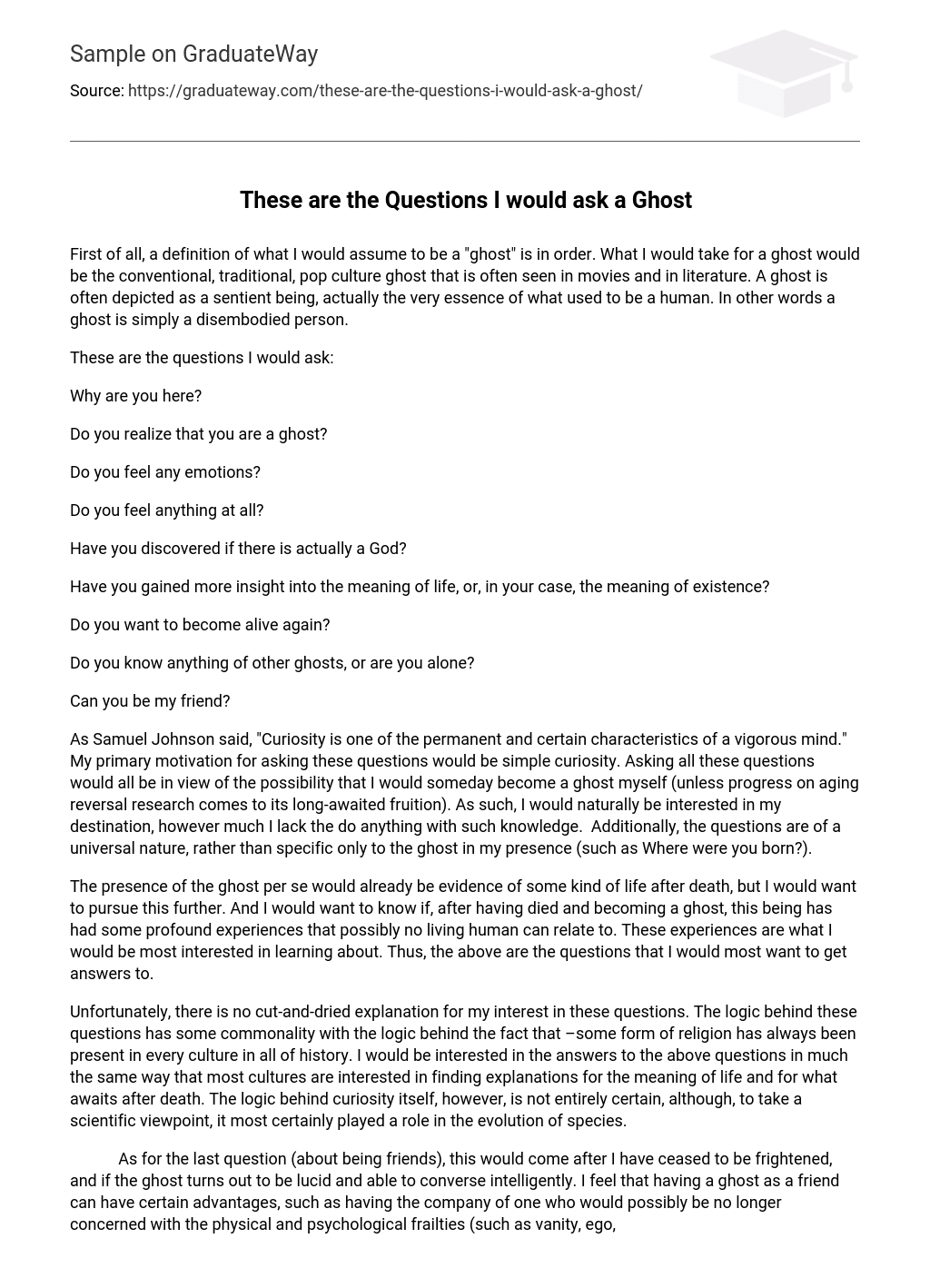First of all, a definition of what I would assume to be a “ghost” is in order. What I would take for a ghost would be the conventional, traditional, pop culture ghost that is often seen in movies and in literature. A ghost is often depicted as a sentient being, actually the very essence of what used to be a human. In other words a ghost is simply a disembodied person.
These are the questions I would ask:
Why are you here?
Do you realize that you are a ghost?
Do you feel any emotions?
Do you feel anything at all?
Have you discovered if there is actually a God?
Have you gained more insight into the meaning of life, or, in your case, the meaning of existence?
Do you want to become alive again?
Do you know anything of other ghosts, or are you alone?
Can you be my friend?
As Samuel Johnson said, “Curiosity is one of the permanent and certain characteristics of a vigorous mind.” My primary motivation for asking these questions would be simple curiosity. Asking all these questions would all be in view of the possibility that I would someday become a ghost myself (unless progress on aging reversal research comes to its long-awaited fruition). As such, I would naturally be interested in my destination, however much I lack the do anything with such knowledge. Additionally, the questions are of a universal nature, rather than specific only to the ghost in my presence (such as Where were you born?).
The presence of the ghost per se would already be evidence of some kind of life after death, but I would want to pursue this further. And I would want to know if, after having died and becoming a ghost, this being has had some profound experiences that possibly no living human can relate to. These experiences are what I would be most interested in learning about. Thus, the above are the questions that I would most want to get answers to.
Unfortunately, there is no cut-and-dried explanation for my interest in these questions. The logic behind these questions has some commonality with the logic behind the fact that –some form of religion has always been present in every culture in all of history. I would be interested in the answers to the above questions in much the same way that most cultures are interested in finding explanations for the meaning of life and for what awaits after death. The logic behind curiosity itself, however, is not entirely certain, although, to take a scientific viewpoint, it most certainly played a role in the evolution of species.
As for the last question (about being friends), this would come after I have ceased to be frightened, and if the ghost turns out to be lucid and able to converse intelligently. I feel that having a ghost as a friend can have certain advantages, such as having the company of one who would possibly be no longer concerned with the physical and psychological frailties (such as vanity, ego, sexual tension) of ‘mere mortals,’ making for a truly profound and platonic relationship.
In conclusion, asking these questions all boils down to the curiosity that is inherent in virtually every human. As Albert Einstein said, “Curiosity has its own reason for existing. One cannot help but be in awe when he contemplates the mysteries of eternity, of life, of the marvelous structure of reality.”





